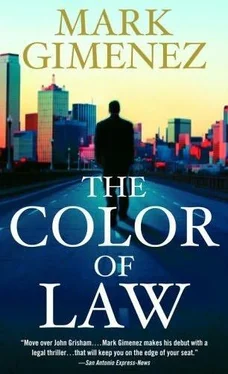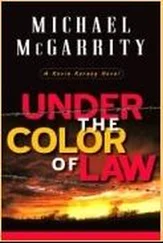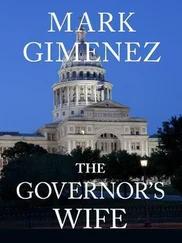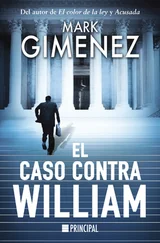Mark Gimenez - The Color of Law
Здесь есть возможность читать онлайн «Mark Gimenez - The Color of Law» весь текст электронной книги совершенно бесплатно (целиком полную версию без сокращений). В некоторых случаях можно слушать аудио, скачать через торрент в формате fb2 и присутствует краткое содержание. Жанр: Криминальный детектив, на английском языке. Описание произведения, (предисловие) а так же отзывы посетителей доступны на портале библиотеки ЛибКат.
- Название:The Color of Law
- Автор:
- Жанр:
- Год:неизвестен
- ISBN:нет данных
- Рейтинг книги:3 / 5. Голосов: 1
-
Избранное:Добавить в избранное
- Отзывы:
-
Ваша оценка:
- 60
- 1
- 2
- 3
- 4
- 5
The Color of Law: краткое содержание, описание и аннотация
Предлагаем к чтению аннотацию, описание, краткое содержание или предисловие (зависит от того, что написал сам автор книги «The Color of Law»). Если вы не нашли необходимую информацию о книге — напишите в комментариях, мы постараемся отыскать её.
The Color of Law — читать онлайн бесплатно полную книгу (весь текст) целиком
Ниже представлен текст книги, разбитый по страницам. Система сохранения места последней прочитанной страницы, позволяет с удобством читать онлайн бесплатно книгу «The Color of Law», без необходимости каждый раз заново искать на чём Вы остановились. Поставьте закладку, и сможете в любой момент перейти на страницу, на которой закончили чтение.
Интервал:
Закладка:
Thus the first Monday of June brought the invasion of forty summer clerks, like Bob here, each trying to catch the eye of powerful partners, the partners in turn trying to divine if these budding legal eagles were the Ford Stevens type. Bob was. From the look on the face of the law student standing next to Missy, he was dreaming of having just such an office one day. Which meant he would bill two hundred hours a month for the next eight years without complaint or contempt, at which time the firm would show him the door-the odds of a new associate making partner at Ford Stevens being one in twenty. But the ambitious students still signed on because, as Scott himself told them, “You want odds, go to Vegas. You want a chance to get filthy rich by the time you’re forty, hire on with Ford Stevens.”
“Mr. Fenney?”
Scott pulled his eyes off Missy and turned to his frumpy middle-aged secretary standing in the door.
“Yes, Sue?”
“Four calls are holding-your wife, Stan Taylor, George Parker, and Tom Dibrell.”
Scott turned back to Missy and the student and shrugged.
“Duty calls.” He shook hands with the pale, homely, top-of-his-class student and slapped him on the shoulder. “Bob-”
“Rob.”
“Oh, I’m sorry. Now, Rob, my Fourth of July bash, that’s mandatory attendance.”
“Yes, sir, I’ve already heard about it.”
To Missy: “You bringing some girls over this year?”
“Ten.”
“Ten?” Scott whistled. “Ten ex-Dallas Cowboy cheerleaders.” The firm paid each girl $500 to spend a few hours in bikinis acting interested in law students. “Bob-”
“Rob.”
“Right. You’d better work on your tan, Rob, if you want to snare one of those cheerleaders.”
Rob grinned even though he had about as much chance of getting a date with an ex-Dallas Cowboy cheerleader as a one-legged man had winning a butt-kicking contest.
“Mr. Fenney,” Rob said, “your speech at the bar luncheon, it was truly inspiring.”
First day on the job and the boy was already brownnosing like an experienced associate. Could he possibly be sincere?
“Thanks, Bob.”
Missy winked. Scott didn’t know if the wink was because she knew his speech was bullshit or if she was flirting again. Like all good-looking single girls in Dallas, Missy had made flirting an art form, always managing to catch his eye when crossing her long lean legs or brush against him in the elevator or just look at him in a way that made him feel as if they were on the brink of an affair. Of course, every male at the firm felt that way about Missy, but Scott was annually voted the best-looking male lawyer at Ford Stevens by the firm’s female support staff, not that it was much of a contest. Scott had been a star football player in college; most lawyers were star chess players. Like Bob here.
“Rob.”
“Right.”
Missy and Bob departed, and Scott went around behind his desk and sat in his high-backed leather chair. His eyes found the phone; four lines were blinking. Without conscious thought, his trained mind instantly prioritized the calls: Tom, Stan, George, wife. Tom had paid the firm $3 million last year, Stan $150,000, George $50,000, and his wife nothing.
Scott picked up the phone and punched Tom’s line.
“Mr. Fenney!”
Scott was waiting impatiently for the elevator in the lobby of the sixty-second floor, on his way to see Tom Dibrell on the sixty-ninth floor. He could not restrain a smile. He was blessed with the kind of rich client lawyers dream about: a real-estate developer addicted to the deal; a client who habitually borrowed, bought, built, leased, sold, sued, and got sued, and, most important, who possessed an uncanny knack for getting himself into one precarious legal predicament after another, extrication from which always requiring the very expensive legal services of A. Scott Fenney, Esq.
Sue arrived, her face flushed from running after him.
“Mr. Fenney, you have the partnership meeting at two.”
Scott checked his watch: 1:45.
“I can’t make it. Tom needs me. What’s on the agenda?”
Sue handed him the partnership meeting agenda. Only one item required his vote: the termination of John Walker as a partner in the firm. Unlike Scott, John was no longer a blessed lawyer. His rich client had just been bought out by a New York company, which meant his client would no longer be paying legal fees to Ford Stevens; and which now meant John Walker would no longer be employed at Ford Stevens. His $800,000 salary had just become an unnecessary expense to the firm. John was a brilliant lawyer, and he and Scott played hoops together twice a week, but this was business: brilliant lawyers without rich clients were worthless to a large law firm.
The elevator doors opened just as Scott reached into his coat for his pen. He stepped inside and Sue followed. Attached to the agenda was a partnership ballot: TERMINATION OF JOHN WALKER. The only partner in the firm who didn’t know John Walker would be fired today was John Walker. Dan Ford believed surprise was critical when firing a partner; otherwise that partner might walk out the door with a few of the firm’s clients. So in fifteen minutes John Walker would walk into Dan’s office, be unceremoniously fired after twelve years with the firm, and then be escorted from the building by security guards. The firm had never lost a single client to a terminated lawyer.
Sue turned and offered her back; Scott put the ballot against her back and his pen to the ballot and started to sign A. Scott Fenney — but he froze. He felt guilty, even though his vote was a mere formality, a nod to the illusion that the Ford Stevens law firm was a partnership of equal lawyers. In fact, Dan Ford owned the firm and every lawyer, office, desk, and book in the firm; and Dan had already decided to fire John Walker. Scott could either rubber-stamp Dan’s decision or refuse and… what?…join John in the unemployment line? He sighed and signed the ballot in the FOR column, then handed the ballot back to Sue and said, “Give that to Dan.”
She stared at the ballot like it was a death warrant and then said, almost in a whisper: “His wife has breast cancer.”
“Dan’s?”
“No. John Walker’s wife. His secretary said it’s in her lymph nodes.”
“You’re kidding? Jesus, she’s young.”
Scott’s mother had been young, too, only forty-three, when the same cancer had killed her. Scott had watched helplessly as she lost her breasts, her hair, and her life. He now thought of John’s wife and of John, who would soon be standing on the street outside this building, coat and career in hand, cursing his partners for abandoning him and God for abandoning his wife, just as Scott had cursed God as the cancer consumed his mother’s body ounce by ounce until she felt like a feather pillow when he lifted her from the bed and carried her to the bathroom.
“Damn.”
He could do no more for John’s wife than he could for his mother, and no more for John than all the other lawyers Dan Ford had fired without warning…but still. Scott stared at himself in the mirrored wall until the elevator eased to a smooth stop and the doors opened on the sixty-ninth floor. The elevator chime snapped him out of his thoughts like a referee’s whistle after an injury time-out. He stepped out. The elevator doors closed behind him, and he entered the domain of Dibrell Property Company, the firm’s landlord and his most important client, accounting for over ninety percent of the legal fees he generated each year, fees that had bought everything Scott Fenney owned in life, from the bed he slept in to the shoes on his feet.
Eleven years ago almost to the day, Scott, at the time a new associate at Ford Stevens, had been in one of the elevators of this building when the doors opened and in stepped Thomas J. Dibrell. Scott recognized him immediately. Everyone in Dallas knew of Tom Dibrell: an SMU alum and rabid football booster, he had been implicated in the play-for-pay scandal with the governor that resulted in the NCAA giving SMU the death penalty in 1987; he had built the lavish Dibrell Tower with $300 million borrowed from a New York pension fund during the real-estate boom of the ’80s; and he had somehow survived bankruptcy in the ’90s, a fate so many other developers had suffered when the Texas real-estate market went bust. In fact, how Tom Dibrell had managed to hold on to his skyscraper while all the other big developers lost theirs to foreclosure remained the second greatest mystery of Dallas, right after Did Oswald act alone?
Читать дальшеИнтервал:
Закладка:
Похожие книги на «The Color of Law»
Представляем Вашему вниманию похожие книги на «The Color of Law» списком для выбора. Мы отобрали схожую по названию и смыслу литературу в надежде предоставить читателям больше вариантов отыскать новые, интересные, ещё непрочитанные произведения.
Обсуждение, отзывы о книге «The Color of Law» и просто собственные мнения читателей. Оставьте ваши комментарии, напишите, что Вы думаете о произведении, его смысле или главных героях. Укажите что конкретно понравилось, а что нет, и почему Вы так считаете.












